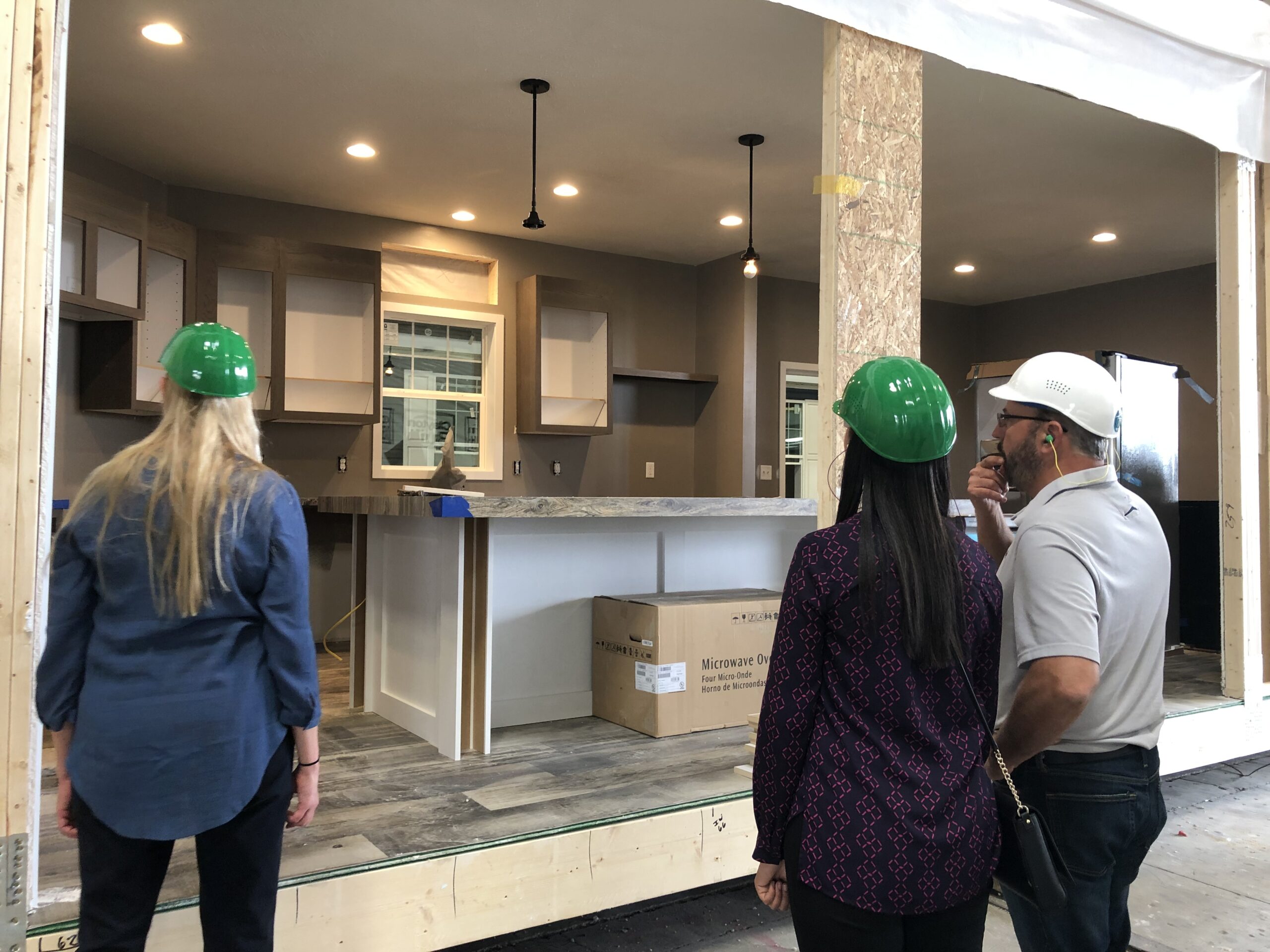Is There Any Good News About Purchasing Chattel Loans on Manufactured Homes? Maybe
By Raymond Leech

As we all know, manufactured housing is one of the best sources of affordable housing available today and makes up to 10 percent of all of the nation’s housing stock. With the severe housing shortage in this country, estimated to be close to four million units by Freddie Mac, manufactured homes are valuable in closing this gap. But a large percentage of loans used to purchase these homes are chattel loans or personal property loans, and the conventional mortgage marketplace does not support chattel loans. This results in financing that has higher interest rates over shorter terms, and fewer consumer protections.
While Cascade Financial has been successful in creating a few securitizations in recent years, there are currently no other major investors that purchase or securitize chattel loans for manufactured housing. And the two Government-Sponsored Enterprises (GSEs), Fannie Mae and Freddie Mac, do not have policies or products in place to purchase them either.
But that could be changing.
What Are the Enterprises Doing on Chattel?
In April of this year, the Federal Housing Finance Agency (FHFA) released the Duty To Serve plans of Fannie Mae and Freddie Mac. Duty To Serve is a commitment by FHFA through Fannie Mae and Freddie Mac to provide financing in three key underserved markets: manufactured housing, rural housing, and affordable housing preservation.
DTS commenced in 2016 and the first plans were announced in 2018. A new plan is announced every three years. The one released in April is for 2022 through 2024.
But the 2022 plans got off to a rocky start, and one of the reasons is both GSEs had nothing to address support for chattel loans.
In a stunning development, the original DTS proposals to FHFA in May of 2021 were soundly rejected by many housing advocates such as the Lincoln Institute, the National Housing Conference, and National Community Stabilization Act. They told FHFA to hit “pause” as they did not believe the proposals met the spirit of the DTS commitment.
The advocates were upset that both GSEs were ending their plans to explore purchasing chattel loans, and disappointed in the goal levels set for rural, affordable housing preservation, and manufactured housing. FHFA listened and told Fannie Mae and Freddie Mac in January of this year to go back to the drawing board. And they did, and the new proposals were accepted in April.
But even with the improved proposals and more robust goals, do not expect significant changes regarding chattel financing in the next few years. However, there are some things happening.
Freddie Mac Duty to Serve Plans
In their April DTS plan, Freddie Mac announced a definite focus and goals for chattel loans in the next few years.
Freddie Mac committed to purchasing from 1,500 to 2,500 chattel loans as part of their DTS goals in 2024. Over the next two years, their plan is to complete a feasibility assessment of the requirements and processes needed to support chattel loan purchase, including underwriting, pricing, consumer protection, valuation, and risk management.
And if they are successful, they want to obtain FHFA approval to move forward with a loan option that could be introduced in 2024. The big challenges they point out are a lack of lender standardization, no standard underwriting practices, and no consistent approach to assessing property values.
Freddie Mac announced a focus on MH homes in Native American and Alaskan American communities, which have complicated land ownership rules due to trust or tribal issues. They also are working on efforts with nonprofit developers to expand the availability of manufactured housing. Additionally, they are focusing on expanding their outreach and loan purchases in resident-owned communities (ROCs) and nonprofit developer communities.
Fannie Mae Duty to Serve Plans
Fannie Mae’s plan does not include any specific goals for chattel financing by 2024. But they are still interested in exploring this area.
“We continue to work with our regulator (FHFA) to understand safety and soundness considerations and the viability of a chattel loan pilot program,” Fannie Mae said in a published statement.
So based on this, Fannie Mae may offer the chattel loan product via a pilot. Typically, pilots are done with selected lenders in specific markets. And pilots can be up to one or two years in length. So do not expect a chattel loan product available nationwide to lenders from Fannie Mae for several years at least.
Fannie Mae’s plan also includes efforts to develop products and strategies to purchase more loans in manufactured home communities. These communities feature homes built in factories and delivered to the community where residents own homes and lease the land from a community owner. They also announced that all loans in these communities must have 100 percent tenant site lease protections in place.
In addition, Fannie Mae announced that they are exploring how to purchase more loans from MHCs to finance rental units, and also allow residents who rent MH units to report their rental payment data to credit bureaus to help build up their credit profiles.
Some Good News
The good news for the manufactured housing industry is that both Fannie and Freddie are increasingly committed to the purchase of more conventional loans related to MH titled as real property, with Freddie planning to purchase from 5,800 to 7,500 loans each in the next three years and Fannie planning to purchase at least 9,300 loans annually in the next three years.
So, in summary, housing advocates were able to steer both Fannie Mae and Freddie Mac toward more robust efforts and goals in the manufactured housing marketplace. Freddie Mac is taking the lead on chattel financing efforts, and typically, once one GSE adopts a program or product, the other one will follow. This will be an interesting effort to examine during the next few years, and hopefully we will see progress down the road.
About the Author
Raymond Leech has worked in the mortgage industry for the past thirty years, first with Fannie Mae and more recently, with Fairway Independent Mortgage Corporation. He has developed and managed construction and renovation mortgage products, but also worked on FHFA Duty To Serve efforts involving manufactured housing, rural, and affordable housing efforts.
MHInsider is the leading source of manufactured housing news, and is a product of MHVillage, the top marketplace for manufactured homes.













